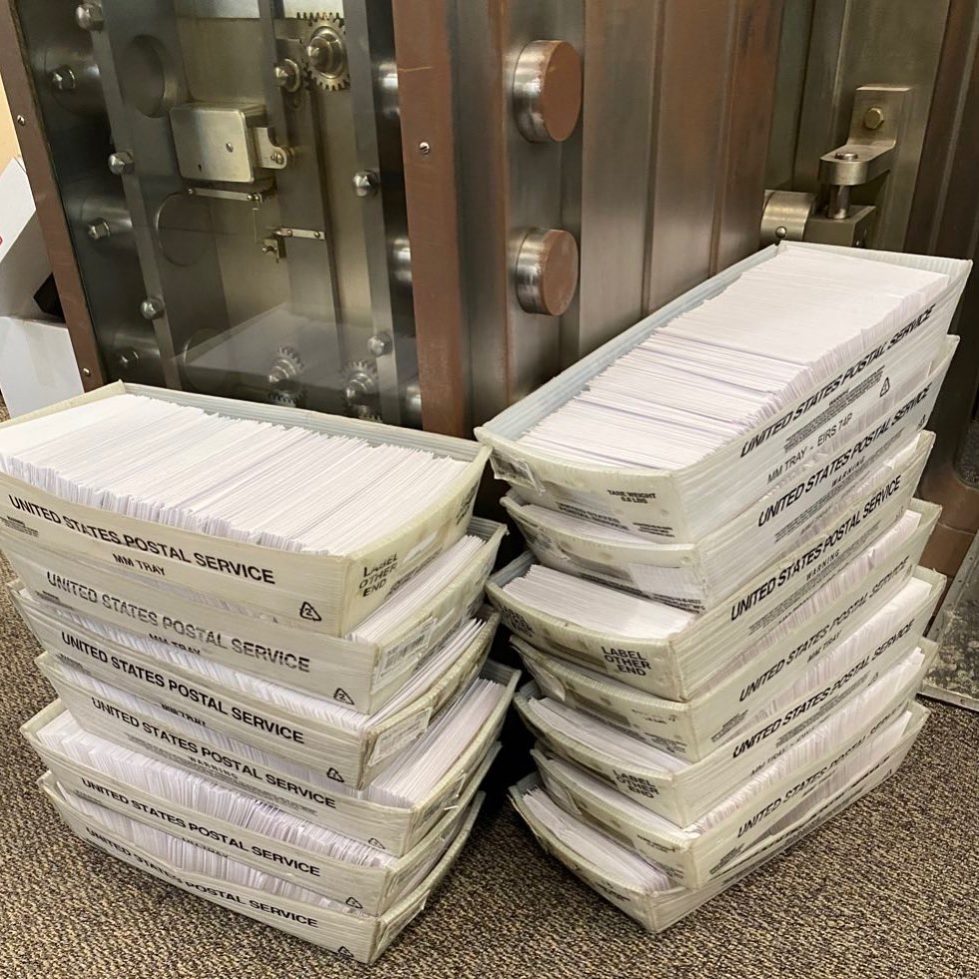by Terry Rogers
The City of Milford currently has almost $1.1 million in past due accounts. The past due property tax balance is $475,000 while the past due utility balance is $623,000.
“October was a chaotic month for the customer service division,” Lou Vitola, City Finance Director, told council. “Our third-party bill printer, which prints, folds, stuffs and mails for us, came to a grinding halt, [and we’re] continuing to have challenges of our own, so the result was late billing, delayed due dates, late fee waivers, reduced cash flows, increased credit risk in the form of more accounts past due and greater outstanding balances, higher call volumes, increased call times which resulted in longer hold times, high demand on our IT resources and high demand on communications. Even more important, as hard as we try to stay professional and as professional as our reps remain, we may not always be able to curry forgiveness for each and every caller or visitor, leaving some dissatisfied tax and utility customers at the end of the day. The good news is that there is light at the end of the tunnel with Pinnacle and the company that bought them coming to full operation. The latest bills went out so that should improve going forward.”
According to Suzannah Frederick, Cash Operations and Revenue Supervisor, after March 2020, past due balances spiked in excess of $500,000, but residents and businesses seemed to respond well and recover quickly. By the middle of summer, past due utility balances were back to normal. Frederick explained that the current spike in past due utilities is directly related to operational challenges faced by the city’s third-party bill processor which caused delays in delivery of bills which led to the spike.
“We are no less than a week behind, but we’re about there,” Vitola told council. “Pinnacle is back in full force so after the last several thousand bills were printed, folded, stuffed and mailed in-house, there were no more after that. So, we should be completely caught up by the end of November.”
Vitola also explained that the city had seen 12- or 13-month lows in delinquent accounts. Due to the billing issue, however, the city doubled the previous 13 months in terms of dollars.
“It just goes to show how quickly, if you are not engaged and do not stay on top of it and execute those four monthly billing cycles like clockwork every week and stay on top of calls and payment processing, it can quickly deteriorate,” Vitola said. “We couldn’t do disconnections either and that’s another thing. Disconnections can be viewed as the ugly necessary component of the utility business, but you can see the value in them as a payment inducer in their absence. We’ve spiked like nothing I’ve seen in 14 months here in just a period of five weeks, so it is unbelievable how important it is to stay on top of that.”
Frederick explained that service interruption for past due accounts continues regularly pursuant to the city code. Disconnection is always preceded by a message on every billing statement as well as a disconnection notice mailed on brightly colored materials.
“Disconnections were deferred recently for billing cycles impacted by the bill printing delays, but all billing cycles are now current,” Frederick said. “Past due notices for due dates the first week in November were mailed on November 10, 2021. Utility customers should always continue the practice of paying for services on time to avoid service interruption. Certain weather conditions may preclude service interruption, but if an account remains unpaid, it is subjection to disconnection on the next day, weather permitting, and will remain in the city’s workflow until payment is made.”
The city has also invested in a variety of resources to help residents and businesses ensure continuous access to critical drinking water, electricity and sanitary sewer services. The city has enabled their customers with tools to save money by reducing consumption, budget for utilities by providing equal monthly bills, pay bills on time with automatic payments and by viewing consumption before paper bills arrive, Frederick explained.
Budget billing allows customers to spread their average annual cost of utilities evenly each month over a year to better prepare for utility costs. Through the City’s Advanced Metering Infrastructure, customers can access their account online to review historical use and patterns, current usage during the month and to react to high usage which can reduce costs. Those who are unsure how to reduce power consumption can take advantage of the city’s Efficiency Smart program. This no cost program offers cash incentives to electric users who switch to more efficient appliances. They will also conduct a home energy review upon request.
“Customers can choose to receive paperless bills, which results in more time to make payment by reducing delivery time,” Frederick said. “Customers may enroll in automatic payment to avoid missed payments. The City of Milford and seven other public power cities and towns in Delaware represented by the Delaware Municipal Electric Corporation (DEMEC) made $250,000 available to assist utility customers facing hardships related to the pandemic. The City of Milford also partners with several third-party government agencies and nonprofit groups to assist residents with utility programs.”
Some of the third-party agencies that may help residents and businesses with energy costs include Delaware State Service Center, and Catholic Charities and First State Community Action. Anyone who is having difficulty paying their utility or property tax bill should contact the City of Milford Customer Service Department by visiting their office at 119 South Walnut Street or calling 302-422-6616.
Share this Post




